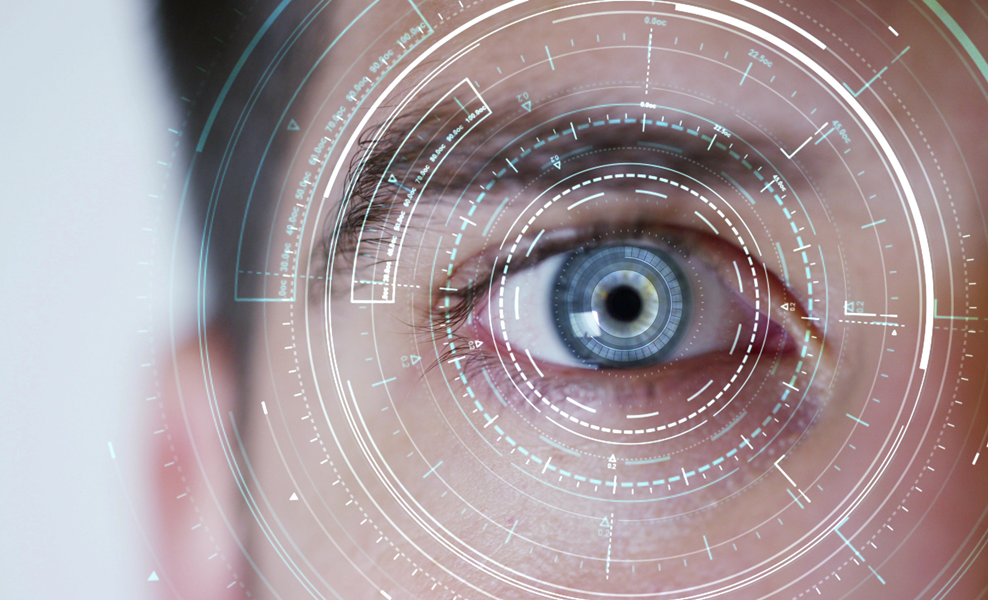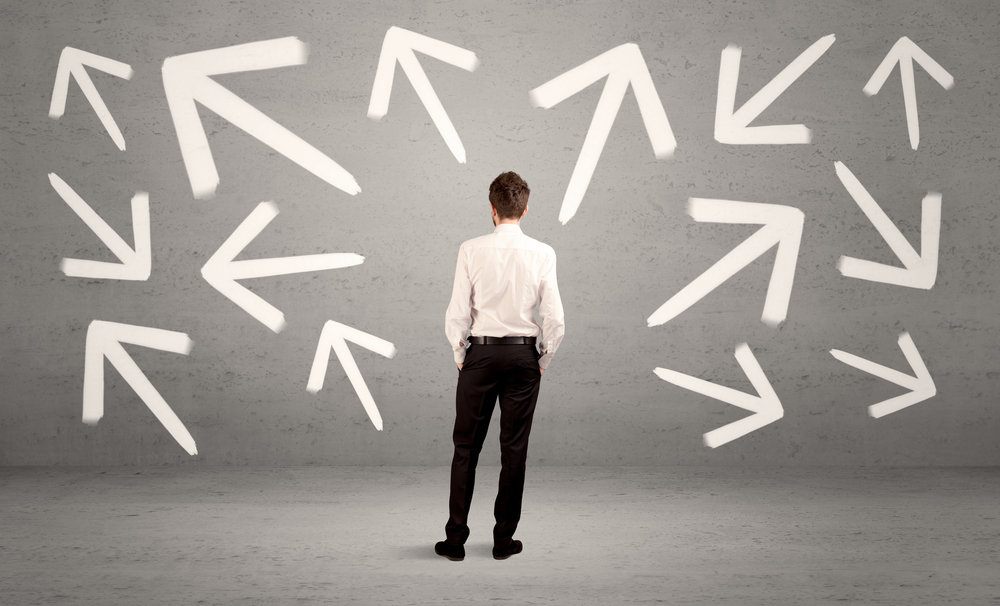Spring has long been synonymous with renewal and rejuvenation. The season beckons us to throw open our windows with reckless abandon, let in fresh air, and remove the clutter that's accumulated over the year. While this physical tidying-up is liberating, it often overlooks other areas of our lives equally in need of a "spring clean": our digital spaces and, perhaps most crucially, our mental landscapes.
The Power of De-cluttering
Clutter can be more than just a harmless mess. It can be a physical manifestation of disorder, that can have tangible impact on our productivity and wellbeing. A cluttered physical or digital environment has been linked to increased stress and anxiety, with research suggesting that individuals who find their work environment “chaotic” or “cluttered” more likely to feel stressed.
Research supports the idea that our physical environment has a profound impact on our mental health and productivity, suggesting that clutter can actually limit the brain's ability to process information and focus, leading to stress and decreased performance at work. Yet, our digital lives can be just as cluttered as our physical ones, and a disorganised digital workspace, like a cluttered desktop or overflowing inbox, can be just as detrimental to focus and cognitive function as a messy physical environment.
However, while we are increasingly aware about the benefits of de-cluttering our physical and digital environments, the realm of mental decluttering is often neglected. Our minds are repositories for not just day-to-day tasks and worries, but also long-term emotional baggage, past traumas, and future anxieties, all of which can be detrimental to our wellbeing and personal effectiveness.
The topic of de-cluttering has gained prominence over recent years, most notably due to the popularity of the Netflix series, “Tidying Up with Marie Kondo” and the now famous KonMari technique for clearing your clutter. But beyond the purely aesthetic benefits of de-cluttering, research also supports the idea that a clutter-free environment can enhance both our focus and our wellbeing.
Some of the notable benefits of de-cluttering can include:
- Enhanced Focus: A clutter-free space minimises distractions, making it easier to concentrate on tasks.
- Reduced Stress: Physical and digital clutter can induce feelings of stress and overwhelm. Removing such clutter can, therefore, create a more calming environment.
- Increased Efficiency: A well-organised workspace helps you find things quicker, saving time and reducing frustration.
- Mental Clarity: De-cluttering can serve as a form of 'mental housekeeping,' helping you prioritise tasks and focus on what really matters.
This article aims to provide a comprehensive guide to spring cleaning your life in three dimensions—physical, digital, and mental.
Physical Decluttering
Your immediate physical environment can significantly influence your mood, wellbeing, focus, and productivity. A cluttered physical environment has been linked to higher stress levels, lack of focus and increased procrastination. Clutter is after all, another form of distraction and like all distractions, it competes for your attention, thereby reducing your ability to focus.
Some simple but effective methods and techniques to help you de-clutter your physical environment include:
- Assess and Prioritise: Before tackling clutter, identify and prioritise the 'hotspots' in your living or working spaces: areas particularly cluttered or disorganised. Focusing on these spaces first can bring immediate improvements in wellbeing and productivity.
- The 5S Method: Borrowed from lean manufacturing, the 5S methodology is a set of five principles designed to create an efficient and productive workspace:
- Sort - involves decluttering the area by removing unnecessary items;
- Set in Order - entails organising essential items in a logical manner for easy access;
- Shine - means cleaning the workspace to maintain a conducive environment;
- Standardise - focuses on creating procedures to maintain the first three S's; and
- Sustain – advocates continually following the procedures and making improvements to ensure long-term benefits.
- Containerising: Use bins, trays, or digital folders to group similar items together. Containerising naturally imposes a limit on how much clutter you can accumulate.
- The One-Touch Rule: When you touch an item, take action on it immediately. If you take a dish out, wash it right away. If you open an email, respond to it or file it appropriately.
- One-in, One-out Rule: For every new item you bring in, remove or donate another. This balanced approach not only maintains a clutter-free environment but also improves mental wellbeing by reducing the cognitive load of managing numerous items.
- Embrace Minimalism: Minimalism promotes the idea of living with less but ensuring that everything you own serves a purpose. Research suggests that adopting a minimalist lifestyle can lead to improvements in life satisfaction and subjective wellbeing. The focus here is on quality over quantity, thereby reducing both physical and mental clutter.
- KonMari Method: The KonMari Method is a decluttering and organising approach developed by Marie Kondo, a Japanese organising consultant and author. The method is outlined in her best-selling book "The Life-Changing Magic of Tidying Up," and it has gained international recognition for its effectiveness. The core principle of the KonMari Method is to keep only those items that "spark joy," encouraging individuals to physically hold each item and gauge their emotional reaction to it. Items that don't evoke joy are thanked for their service before being discarded, donated, or sold. The process is not just about eliminating clutter but also about mindful consideration of what brings value to your life. By focusing on joy and gratitude, the KonMari Method aims to create not just a neatly organised space but also a more fulfilling, intentional lifestyle.
Digital Decluttering
The adverse effects of a disorganised digital life are backed by scientific research. One study found that cluttered digital spaces can have a similar impact on our cognitive functions as cluttered physical environments. Such clutter can lead to decreased focus, increased stress, and overall detrimental impact on wellbeing.
Techniques for digital de-cluttering could include:
- Inbox Zero
The Inbox Zero concept encourages you to keep your email inbox empty or nearly empty at all times. This involves sorting emails into appropriate categories, archiving them, or deleting them as soon as they have been attended to. To implement this, consider setting aside specific times at the beginning and end of your workday or week solely for email management. The mere act of sorting emails can dramatically reduce the mental burden of a cluttered inbox, improve your focus, and decrease feelings of overwhelm.
- Taming The Tabs
Effective browser tab management can be effective for reducing digital clutter, enhancing focus, and preventing overwhelm. Having too many open tabs can serve as a constant source of distraction, leading to procrastination and diminished productivity by fragmenting your attention and making it difficult to complete tasks efficiently.
- Digital File Management
Effective file management involves creating a consistent naming convention and organisational structure for all your digital documents. This helps in easy retrieval and lessens the cognitive load when looking for files. One approach is to adopt a uniform naming for all files, making it easier to locate files and get an idea of their content without having to open them. Try to establish a weekly habit of organising your files into designated folders based on this naming convention and combine it with a regular practice of archiving or deleting outdated or unnecessary files.
- Controlling Communications
The proliferation of newsletters, social media and applications means we're constantly bombarded with information, much of which may no longer be relevant or even interesting. A regular email and social media audit can help you remove communications that no longer add value to you, with research suggesting that reducing your exposure to irrelevant or unhelpful information and communications can positively impact your wellbeing.
- App Management
The sheer number of apps that many of us have on our smartphones can be overwhelming. Effective app management means categorising your apps into specific folders like "Productivity," "Social," and "Entertainment." Regularly review your home screen apps and folders, and remove apps you haven’t used for an extended period.
Mental De-cluttering
Mental de-cluttering offers significant benefits in terms of enhancing cognitive function and emotional wellbeing. By practising mindfulness, better organising our thoughts and letting go of mental baggage, individuals can improve focus, reduce stress, and increase personal effectiveness.
Focused Attention and Mindfulness
Mindfulness is a potent tool for mental de-cluttering, offering a straightforward way to cultivate focus, productivity, and overall wellbeing. At its core, mindfulness involves being fully present and engaged in the current moment, a practice that can be as simple as taking a few deep breaths, tuning into your senses, or pausing to observe your thoughts without judgment. These micro-practices can be seamlessly integrated into various parts of your day, whether it's during a work break, while eating, or even while commuting. By regularly engaging in mindfulness, you essentially clear the mental clutter that often distracts us, contributing to improved concentration, reduced stress levels, and a more balanced emotional state. These benefits not only enhance your immediate experience but also have long-term positive impacts on your mental wellbeing.
Mind Dumping
Mind Dumping is a cognitive unloading strategy based on the simple premise that our minds are not always the most effective storage devices for tasks, reminders, or ideas. These lingering thoughts can become a source of stress, inhibiting our ability to focus.
By transferring them onto paper or a digital platform, you're enabling your mind to let go of the effort required to hold onto them. This acts as an external memory source, reducing the mental load and making it easier to prioritise. This is believed to free up mental space, allowing for more focused thinking and effective task management.
Simply dedicate 5-15 minutes each day to sit quietly and jot down anything that comes to mind. This could include tasks, worries, ideas, or even random thoughts. After you've emptied your mind, go through the list and start organising items by category or priority and then integrate these tasks into your preferred time management system.
Letting Go
Clinging to unresolved emotions, regrets, or self-directed criticisms not only hampers cognitive and emotional functions but also undermines our capacity to fully experience and appreciate the present moment. Studies suggest that unresolved emotional baggage can lead to chronic stress, which can have a devastating impact on our wellbeing and can impede cognitive functions like memory and attention.
The emotional toll of holding onto the past can also limit our ability to enjoy and appreciate what we have right here and now. Research suggests that being able to appreciate and savour the present moment is directly correlated with psychological wellbeing, but if we are perpetually consumed by the past with unresolved issues and regrets, we limit our ability to fully engage with, and appreciate, the beauty and joy that can be found in the minutae of our daily lives.
Acknowledging and confronting these feelings can be the first step toward emotional freedom. Various techniques can assist with this emotional unburdening, including mindfulness practices, journaling, or importantly seeking professional mental health guidance where necessary.
Evidence supports the significant benefits of letting go—whether it's forgiving others or oneself. Studies have found links between forgiveness and numerous mental and physical benefits. Additionally, forgiving yourself contributes to self-compassion which has been found to similarly help improve your wellbeing.
With this kind of mental de-cluttering you can let go of the emotional weight of the past, helping to pave the way for a more fulfilling present and future.
Making Space
In today's fast-paced world, clutter in any form, be it physical, digital, or mental, poses a unique set of challenges that go beyond mere aesthetics or inconvenience. The scientific evidence supporting the negative impact of clutter on our cognitive functions, emotional wellbeing, and overall productivity is compelling. Therefore, adopting a comprehensive approach to de-cluttering becomes not just a choice, but a necessity for anyone aiming for enhanced productivity and wellbeing.
We've explored various methods to tackle clutter across different domains of your life. From setting up a systematic routine for physical cleaning to implementing strategies for digital organisation, each step contributes to creating an environment that supports rather than hinders your goals. Likewise, the importance of addressing mental clutter through evidence-based practices such as letting go, mind dumping, and mindfulness cannot be overstated. These practices are not isolated acts but interlinked components of a holistic lifestyle change aimed at improving your quality of life.
Investing the time and effort into de-cluttering pays dividends beyond just an organised closet or a clean desktop. It paves the way for a more focused mind, reduced stress levels, and an enhanced sense of wellbeing. By taking a deliberate and methodical approach to eliminating clutter from all facets of your life, you are essentially setting up a strong foundation for improved productivity and, most importantly, a healthier, more fulfilling life.
Share this
You May Also Like
These Related Stories

The Fight For Focus

Dealing With Disorder - The Power of Prioritisation & Time Management




